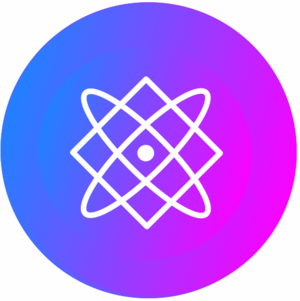Gitshock finance
What is Gitshock Finance
Gitshock Finance is a blockchain project created on Cosmos which aims to assist people in building new smart contracts, tokens, and private blockchains on multiple EVM based chains easier and quicker. This project provides several features for crypto developers to build their own smart contracts using drag and drop tools, without any coding skills. Gitshock Finance‘s services will allow users to build their own projects fast without manual coding tasks. The main services we offer will be Gitshock Edgeware, Gitshock Bridge, and Gitshock Wallet. Those services will demand developers/users to use our tokens ($GTFX) as the fees.
Who Are the Founders of Gitshock Finance
- The project is developed by a computer specialist @Joyy Wibowo , a full stack developer who previously worked fo Lazada SEA. His experiences in Several Crypto projects such as Trust Wallet, Forebole, Futureswap (see his github here). had brought him to create a new platform for crypto industry named by Gitshock.
- Joy Wibowo has been interested in coding since he knew bitcoin technology from early 2009–2010, when he mined it directly from bitcoincore. He mined thousands of BTC and stored them in Bitcoin wallet Dat until now. Since then he learned everything about coding industry, mastering more than 10 coding languages including Javascript, Ruby On Rails, jQuery, SaaS, Java, Spring, React.Js, React Native, Redux, Type Script, Node.Js, angular. Js, Vue.Js, C++, C#, NET Framework, Kotlin, Swift, Golang, Kubernetes, Maven, RabbitMQ, Jenkins, PostgreSQL, NoSQL, CI/CD, and ClevelDB. These ability supports him to make disruptive ideas in programming industy possible.
- He teamed with Jerry Klisman, an expert trader with marketing experiences in home industry with several years of experience in blockchain, cryptocurrency, digital payments and e-commerce systems; Anggodo P., A businessman who managed outsourcing companies (one of them is Magnum Security) as Financial Advisor; Roberto C. Montezuma as Tech and Community Advisor; M Fathurridho a literalist who previously worked for edu-tech startup company as the PR ; J.M. Agustyo, an expert engineer who has many networking ecosystem in coding industry; and more than supporting 10 members.
What Makes Gitshock Unique
- Githock Finance is a framework protocol that builds blockchain services. There are three MVPs being developed by the protocol including Gitshock Edgeware, Gitshock Wallet and Gitshock Bridge. Those products are powered by a utility token called by $GTFX token.
- The Gitshock Edgeware will allow users to create (1) customizable Ethereum Virtual Machine based tokens in drag and drop way service, (2) customizable RPC and nodes for Private blockchain in drag and drop way, (3) customizable decentralized DEX, etc. The Gitshock Wallet will allow users to store multiple chains’ assets and manage them inside the Gitshock Wallet platform. They will be able to stake, swap and store tokens easily from the app. The Gitshock Wallet will also have some services for other project’s including logo listing, new token offering etc. The Gitshock Bridge aims to allow inter-chain asset transfer for several supporting chains with enough liquidity,
- The GTFX token is a token built on 8 different chains, including; ETH, BSC, Solana, Fantom, Avalance, Aurora, Polygon, and Metis. It will go mainnet to Cosmos SDK and become a PoS protocol which can be mined by miners around the world.
How Many Gitshock Finance Tokens (GTFX) Are There in Circulation
The maximum supply of GTFX is 1,050,000,000 tokens, of which 400 million are on EVM based chains (50 million for each network) and 650 million on the mainnet.
Is the Gitshock Token Secure
There will be audits for the EVM based smart contract based on Ethereum’s standard. While The Gitshock network is secured through proof-of-stake (PoS) consensus. Means, Gitshock coin holders who stake their GTFX can earn returns from the network fees. Another way for GTFX stakers to earn rewards is via the protocol’s inflationary monetary policy, known as staking rewards.
